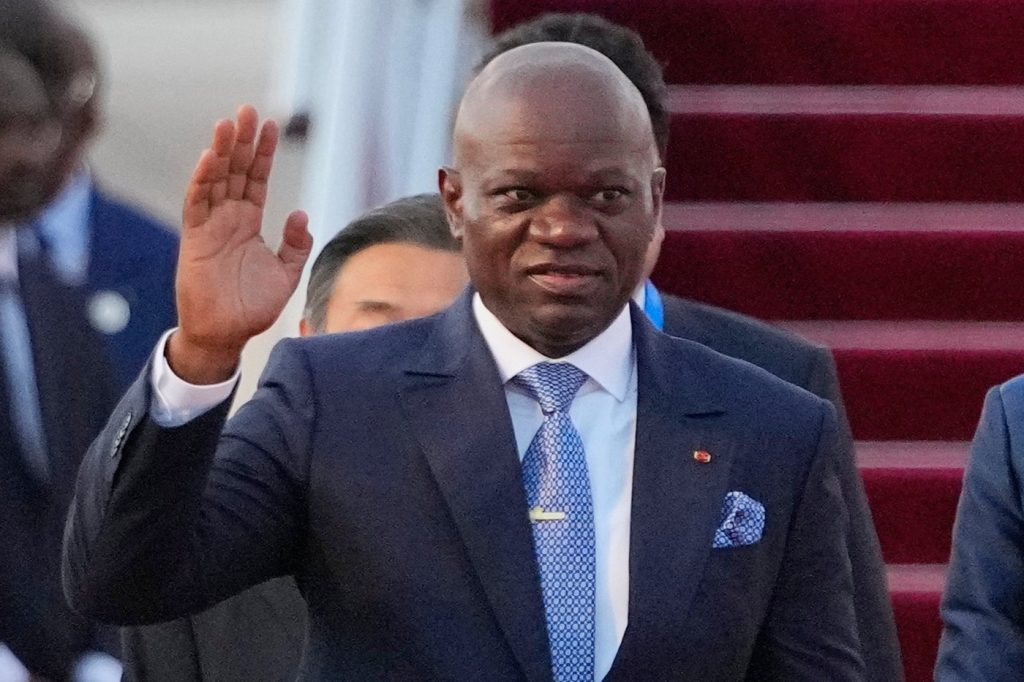On Saturday, in Libreville, the capital of Gabon, Gen. Brice Oligui Nguema was officially sworn in as the fourth president of the Republic of Gabon. This inauguration marks a significant step towards restoring constitutional order in a nation that has been navigating a political transition following a military coup in 2023. The event attracted hundreds of thousands of Gabonese citizens who gathered in a stadium to witness the ceremony.
Gen. Nguema, aged 50, previously served as the head of Gabon's republican guard unit. In his inauguration speech, he emphasized his commitment to diversifying the nation’s economy, which is heavily reliant on oil, reforming the education system, and tackling the high rates of youth unemployment that plague the country. "Today we celebrate democratic renewal," he proclaimed, vowing to "serve, protect and unite all Gabonese," reflecting the promises he made during his campaign.
Nguema's pathway to the presidency included a decisive victory in the presidential election on April 12, where he bested seven other candidates, including former Prime Minister Alain Claude Bilie-By-Nze, who secured only 3% of the votes. Notably, none of the other six candidates obtained more than 1% of the total votes cast, contributing to a voter turnout of 70.11% from approximately 920,000 registered voters, including over 28,000 foreigners.
The newly elected president faces considerable challenges, particularly concerning the nation's economic structure, which heavily depends on oil revenue. Gabon also grapples with a high unemployment rate, especially among young graduates, and suffers from inadequate infrastructure. Essential services, such as reliable access to clean water and effective transportation networks connecting regional provinces, remain scarce.
Having previously overthrown longtime President Ali Bongo Ondimba, Nguema has now assumed leadership after directing a transitional government. He won the aforementioned presidential election with 58,074 votes, accounting for 94.85% of the votes cast. In his address to the nation, he reiterated his intent to transform Gabon by diversifying its economy and promoting the processing of raw materials, while also inviting foreign investments to stimulate growth in various sectors.
However, there are concerns regarding the practical implementation of his promises. Political geography expert Serge Loungou from Omar Bongo University noted that while Nguema's rhetoric has raised hopes among the populace, there exists a substantial gap between promises and actions. Loungou pointed out the stark reality of 40% youth unemployment and the ongoing dependency on oil revenues, alongside the pressing need for improvements in infrastructure and social services.
Despite its oil wealth, Gabon has a population of 2.3 million people, with a significant portion living in poverty—about one-third of the population. In the backdrop of this economic and social landscape, the government has scheduled legislative and local elections for September, indicating a continued evolution of Gabon's political sphere in the wake of Nguema's leadership.










